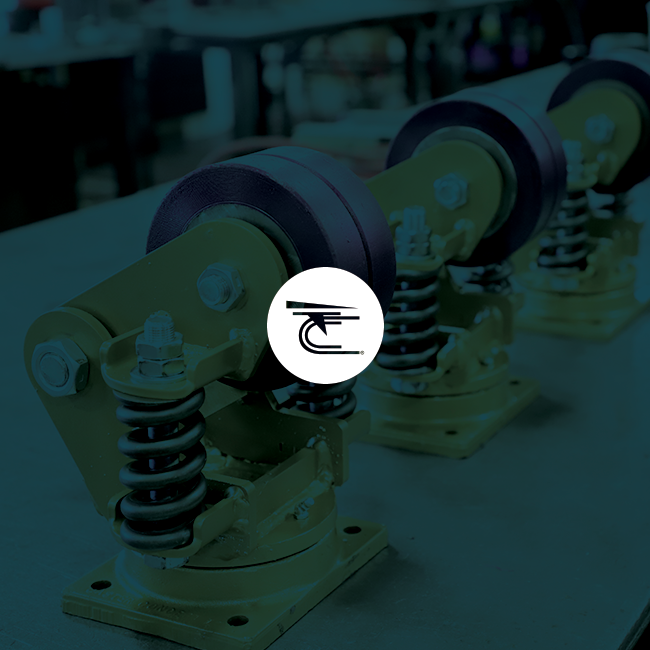

Tough. Durable. Long-lasting. All of these attributes come to mind when describing polyurethane casters – which have become a popular option for wheel tread on industrial casters and wheels of all types.
Polyurethane tires – when added to drive wheels, industrial wheels or casters – can have numerous benefits that may not be immediately evident – until one experiences the difference in their manufacturing operation. In a previous blog, we talked about how such tires can extend the life of custom caster wheels. Now, here are some other benefits to consider when considering polyurethane for your casters:
1) Noise Reduction. Polyurethane tires are a popular choice in industrial applications because of their noise-reducing capabilities — especially when compared to harder wheels such as steel or cast iron. The polyurethane acts as a shock absorber and helps to cushion the ride, absorbing bumps from uneven terrain. The noise levels can be reduced dramatically when using polyurethane instead of steel or cast iron wheels, which can help protect your employees’ hearing and ensure compliance with OSHA regulations.
2) Load Bearing Capability. Polyurethane tires are also often utilized for their load bearing capacity when compared to rubber. Polyurethane can provide a greater load bearing capacity while still providing the benefits of a rubber tread, such as noise reduction, shock absorption and floor protection.
3) Coefficient of Friction. Another benefit to polyurethane tires in industrial applications is the coefficient of friction of the material. Polyurethane tends to be a “grippy” material and can help keep towed carts right-side up, where sliding can be a problem for harder wheel materials. It also provides good traction for drive wheels and helps to reduce the amount of load on the wheel to achieve the desired driving force.
4) Floor Protection. Polyurethane tires are also warranted in applications where floor protection is critical. The polyurethane will deflect and create a much larger footprint than harder wheel materials, such as nylon. This larger area helps reduce the stress concentration on floors and keep the floors in better shape for a longer period of time. So if your floors are expensive and critical to your operation, a polyurethane tire may be the correct choice for your application.
5) Resistance to Corrosion. There are many different types of polyurethanes that have varying levels of resistance to certain chemicals, solvents, or even water. In humid or wet environments, polyurethane that is water-resistant can be deployed. In other environments where chemical exposure is a problem, a different type of polyurethane can be used to prolong the life of the industrial wheel.
Polyurethane tires have many benefits in industrial wheel and caster applications, and the reasons above discuss some of the more popular ones. Polyurethanes can provide resistance to corrosion, floor protection, and noise reduction all while providing a material that can handle a lot of capacity. Switching to a polyurethane tire could have a dramatic impact on the success of your operation.
Design the exact caster for your needs on our Custom Configurator including the options you need, and download a 3D model.
For more information visit our website.